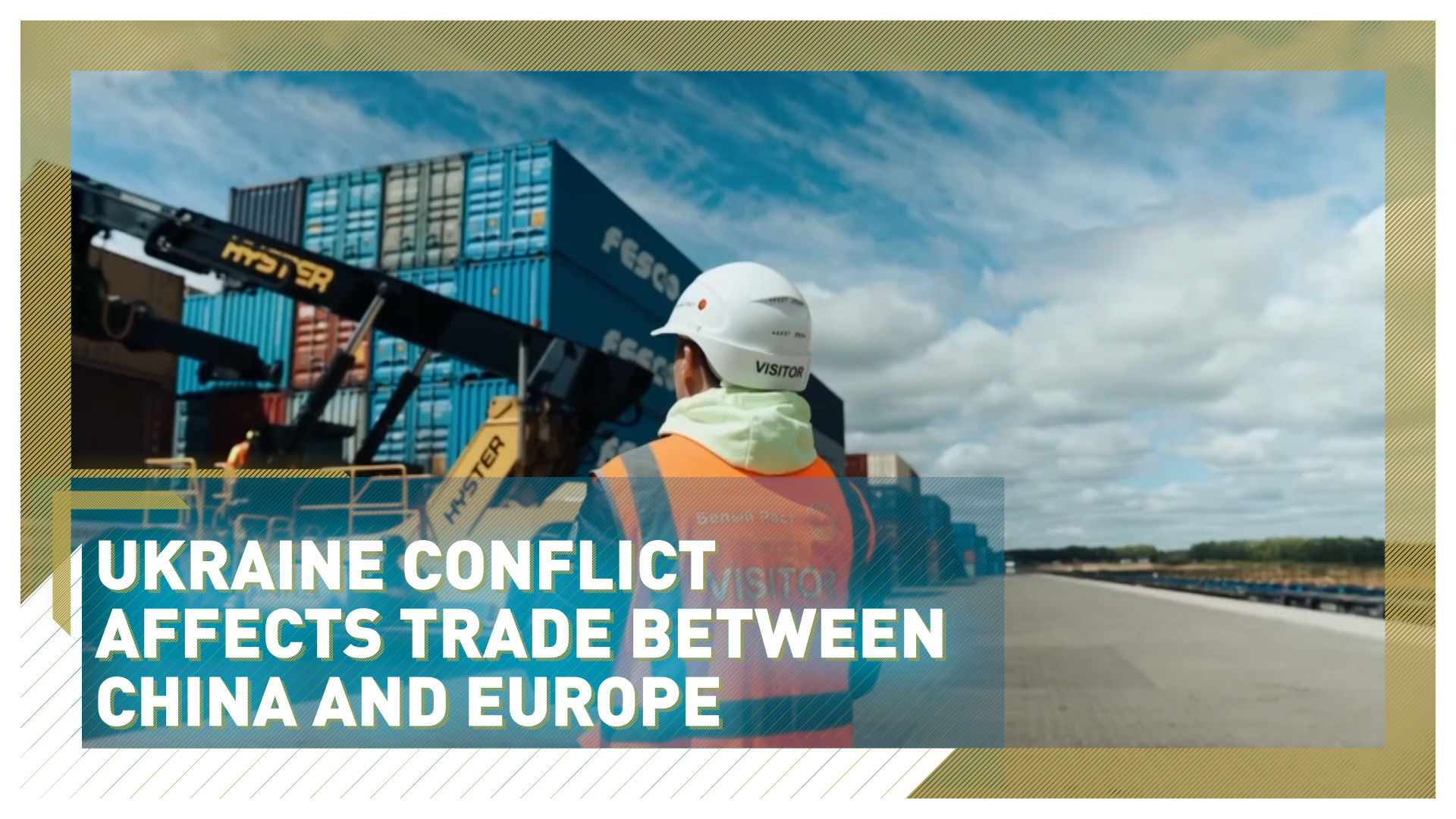
There have been far fewer container trains running between China and the EU through Russia since it started its military offensive in Ukraine. /CGTN
There have been far fewer container trains running between China and the EU through Russia since it started its military offensive in Ukraine. /CGTN
Russia's military campaign in Ukraine has affected the global economy in multiple ways. Sharing borders on either side of Russia, China and the European Union are two of the world's largest economies. But since the conflict started in February, disruptions of key trans-continental supply chains have compromised trade between the two.
St Petersburg is Russia's second-largest city and also a very significant transportation hub. Until recently, it was the transit station for container trains and ships.
It was established as Russia's gateway to the west back in the 19th century. With access to the Baltic Sea, and on account of being closer to key European markets than Moscow is, its location has been hugely strategic over the years. However, its location became far less relevant after the start of the conflict in Ukraine.
READ MORE
From Galileo to Webb: a stargazing history
Deciphering the Stonehenge calendar
Lynx cut off by Poland's border wall
Suddenly, there were far fewer container trains running between China and the EU through Russia.
"In total, during the five months, transport levels between China and Europe was down 11 percent on last year," Viktor Markov,
Director of TransContainer, told CGTN.
"Transport from China to Europe was hit the most due to pressure related to sanctions. They dropped the most. At the same time, compared with last year, we have seen an increase in transport from Europe to China," Markov explained.
He added that the most significant drop was recorded in April, while June's figures showed some signs of recovery.
02:32

Russia looks to the east
Meanwhile, ties between the Russian and Western economies have been almost entirely cut. So, Russia is now looking more and more to the east, and particularly, towards China.
"The future development of the Russian economy under sanctions will depend a lot on how our two great nations, China and Russia, can collaborate," said Anatoly Artamonov, a senator in Russia's Federation Council.
"We have a strong foundation laid, and our task today is not to put that collaboration in the shade, but to make it more transparent, open, and trustful," said Artamonov.
Despite the ongoing conflict in Ukraine, the world economy has to keep going, hence it is essential that China-EU trade finds a way forward.
Local Russian experts warn that such a shift would not only be very costly to Russia, China, and the EU, but would have ramifications that would affect all global supply routes.

